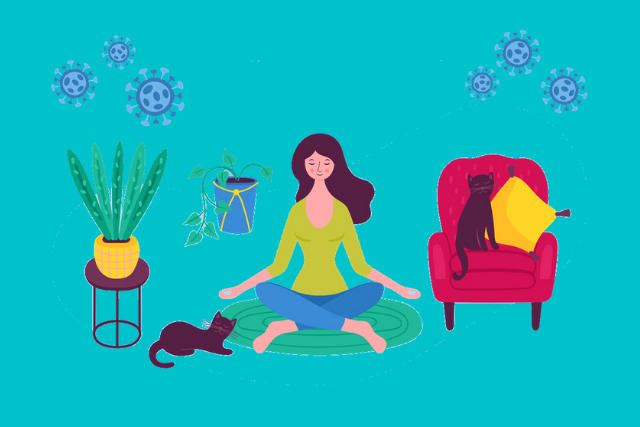
EDITOR’S NOTE: You can find a number of helpful coronavirus resources and all related Tiny Buddha articles here.
“The problem is not the existence of stressors, which cannot be avoided; stress is simply the brain’s way of signaling that something is important. The problem—or perhaps the opportunity—is how we respond to this stress.” ~The Book of Joy
For the past few weeks, I took pride in being able to keep fear at a distance.
My motto was “Don’t let the fear in. The fear makes you a vulnerable host to coronavirus.”
Since I have Crohn’s disease, an autoimmune condition, I know about stress and how it harms my immune system. Stress steals energy from the necessary functions my body performs to keep me alive. Fear adds stress to the body.
As I drove up to the parking lot of my favorite grocery store, people were gathered outside—and the store wasn’t open, yet. My sensitive nervous system scanned the environment and registered that something was wrong.
This wasn’t normal. I came here daily, and I had never seen this before.
People weren’t talking, they weren’t smiling, and they gripped the handles of shopping carts like they were ready to claim a Black Friday deal.
Approaching the store, I squeezed my way through to the last remaining shopping carts. People frowned at me as if I was trying to cut in line. I smiled from behind my face mask, hoping my eyes communicated that “I am here with you—not in competition with you.”
As the door opened to the store, people stampeded in. It was like a race: ready, on your mark, get set—GO! People scattered across the store to retrieve items like their lives depended on them.
Standing at the entrance in shock, I barely noticed the nice employee standing there. Smiling, he offered me a disinfectant wipe as if to say, “It is okay. We will keep you safe.” For a moment, his smile calmed my senses.
As I made my way to the meat aisle, I felt my adrenaline surge. Will they have my ground meat? What if they don’t have my gluten-free staples? What will I eat with my restricted diet if they are out of my life sustaining products? What about prunes?
In a brief second, I went from smiling at a kind man to fearing I would be unable to go to the bathroom and eventually starve to death. In the moment, this situation seemed more life-threatening than the Crohn’s disease I battled daily.
My motto, “Don’t let the fear in,” was submerged in the chaos around me.
After securing my groceries, minus some of my favorite items, I took a deep breath and made my way outside and to my car. Sitting in the car for a few minutes, I noticed my heart pounding and my hands were shaking.
The fear and stress were already registering in my body as physical symptoms.
“Oh no,” I said to myself. “My immune system is already compromised, and now I am stressing it even more. This is placing me at greater risk for illness!”
Thump thump, my heart rate called for my attention.
Noticing my heart rate, I felt warm and sweaty as I panicked about the panic.
I was stressing about the stress.
When I got home, as I opened my front door, I was greeted by my new kittens, Pawso and Samba. Just weeks ago, I was their foster mama and now I am their forever family. These kittens weren’t “my plan,” but they are teaching me to accept that life can have a plan of its own.
I watched them pounce and tumble together. I could hear their purrs. Relaxing my tight grip on the front door, I observed them playing and acting as they normally do.
My house was normal; it was safe. I had nothing to fear in this present moment.
There are many times in my life I adapted to changes that didn’t go according to my plan.
Coronavirus certainly isn’t to be compared to kitten adoption, but how I adapt to changes in my routine and monitor my stress levels are the same. Change always brings some degree of stress.
I wouldn’t be human if fear didn’t affect me. As soon as I entered the grocery store, it filled my senses like the overflowing shopping carts.
Just like coronavirus, fear is contagious too. But there is a difference. Only a percentage of us will contract coronavirus. Nearly everyone seems afflicted with fear.
My history of trauma makes me primed for fear and stress. My body’s warning system is primed to react to any indication of danger in my environment. It doesn’t know the difference between a traumatic event that happened twenty years ago and a present trigger.
Simple things like people gathered outside the grocery store, a deviation from the normal routine, triggered my body’s familiar response to trauma. To me, this was a traumatic event.
As I settled back into my routine at home, I realized that even though fear and stress were around me, in the space of my own home and in the respite of my own body, I was in total control.
The days that followed I developed a plan to feel empowered over coronavirus and fear.
1. Make my priorities clear
My plan is changing minute by minute, so I need to be flexible, but I am clear about my priorities.
My health comes first, and during times of crisis, stress reduction is critical. Normal day-to-day stress can strain my immune system, but now stress levels are at their peak, so I must be more vigilant than ever with my self-care.
Life as I know it is going to change.
Today I must find my new normal and trust that I have adapted to a broad range of changes in my life—from new kittens to the potentially life-threatening diagnosis of Crohn’s disease.
I am still here and alive to share about it.
I have to forego some of my passions—ballroom dancing at the studio—but I can and will replace this with other passions.
Maybe now is the time to rekindle some of my past passions, such as playing my piano.
I need to make a plan. This includes taking extra supplements to boost my immune system and monitoring my overall health in conjunction with my healthcare team.
2. Orient to my present surroundings
When I returned from the grocery store, my stress level was elevated. As soon as I saw Pawso and Samba, I was reminded that I was not at the grocery store. I was home.
Pawso and Samba instinctively know when there is danger. When I got home, they were playful and content.
When I oriented myself to their clear demonstration that “It is safe, let’s play,” it brought me into the present moment. I, too, was safe.
I learned at a young age to view my environment as unsafe
My history of trauma naturally alerts me to the potentially scary things in my surroundings.
My history of trauma doesn’t draw my attention to the safe cues around me.
Knowing this, I have to be mindful and identify the things in my environment that are safe because this calms my body’s stress response.
What we focus on changes how we feel.
During my trip to the grocery store, I recalled only one indication of safety—the employee’s warm smile. There were other indicators of safety, but I was too stressed to notice. Instead I became a part of the shopping cart frenzy. In reality, all of us went home with enough food.
Realigning with signs of safety is essential because when I focus on danger, this elevates my body’s stress response. This is not healthy for my already compromised immune system.
3. Remember my resiliency
Many of us with histories of autoimmune disease and trauma have already survived a lot. Our complex histories have taught us how to prioritize and adapt.
These universal life skills can help us cope with change whether it is adjusting to two furry friends in the home or developing a plan to reduce coronavirus risks.
Health crises like coronavirus are traumatic not only because of the real present threats but because they remind us of what we have already endured with past health crises.
I don’t want to “go back there,” and cannot imagine having more symptoms “stacked” on my preexisting ones.
The mere thought of hospitalization terrifies me, and I don’t want to die.
I check in with my thoughts regularly.
I try not to describe myself as “high-risk,” because I want to feel strong.
I want mental immunity in addition to physical immunity.
My thoughts have significant influence over my health.
For some people, coronavirus has introduced new lifestyle restrictions. Living with autoimmune disease, I feel like my routine is mostly the same.
I am always hypervigilant about washing my hands, wear a mask in crowded public places, and restrict my travel and social engagements during busy times like holidays. I have a balance of working from home and in the field.
Taking precautions feels normal to me. I don’t want any virus, regardless of origin.
The biggest obstacle is my mind and my perceptions of what is going on around me. The fears I carry about the “what ifs” and the events I imagine might take place in the future can wreak havoc on my well-being—far worse than any day-to-day adjustments.
My mind is my greatest inconvenience right now.
4. Adhere to restrictions beyond sheltering at home
I have to restrict my intake of the news and social media, because I am sensitive to the fear and stress. This is good self-care—a balance of being informed without getting overly focused on content that weakens my mental immunity.
For me, just one hour of late-night television is enough exposure, because at the bottom of the screen I can see the scrolling updates about coronavirus.
One to three social media check-ins per day and I get my dosage of updates on current events.
Sometimes I have to tell my friends I don’t want to talk about the coronavirus and instead suggest we share memories and laugh. “Laughter is the best medicine” might be cliché, but laughing increases happy chemicals that result in a positive mood and greater well-being.
5. Remember that social distancing doesn’t mean social isolation
“No doctor can write a prescription for friendship and love.” ~Bessel van der Kolk, M.D.
Our society has become increasingly disconnected as face-to-face communication is replaced with screens. We need human contact. It is necessary for survival. Right now, we need our social connections more than anything.
Yesterday I walked outside and had a delightful conversation with my neighbor across the street. We may have been yelling, but there was no question we respected social distancing. It felt great to have human connection.
I hold in my heart how much better I felt when I noticed the man smiling at me in the grocery store. It calmed me instantly.
This is my focus—the healing power of relationships—the greatest boost we can offer to our immune systems.
6. Be kind
When we remember that we are all in this together, suddenly we focus our attention on the positive events taking place around us. This orients our brain and body to safety and calms our stress response.
Making a difference is empowering. It reminds us how much influence we still have over our lives even when scary things are happening around us. Helping others has a positive effect on our immune systems.
Now is the time to find creative ways to give back to our communities. For example, consider fostering for your local animal rescue organizations. Not only do animals offer stress relief, companionship, and the healing power of relationship, but they are one way to give back while sheltering at home.
When I smile at the people in my community providing services to those of us sheltering at home and I say, “Thank you for your services,” I feel at peace because kindness reminds my body and mind what is most important.
7. Find the sparkle in every situation
Even though I have been mandated to stay home, I can see a sparkle of light that is always there if I open my eyes. Sitting at my desk, I look around…
Among the confines of these walls from which I am told I should not venture far, is the home that I helped build. This home is a reflection of my values, my beliefs, and is abundant with intangibles to comfort me.
My home is abundant with love from my family and pets and offers me a sanctuary to be my true and uninhibited self. In my home, I have the space to truly be with me.
This is the only moment in my lifetime where I have been given permission to stay home, take care of myself, and am not asked to give reasons why. This is the only moment in my life where my health and safety have been deemed most important by the entire world.
Maybe I needed a mandate to stay home and notice that I am exactly where I always wished I could be—and here I am.
About Casey Hersch
Casey Hersch, LCSW, is a licensed clinical social worker, animal rescuer, and author of the colorful, rhyming, mental health kids book I Am Pawso: A Cat Teaches Kids Ways To Turn Around Difficult Situations. She uses holistic and resilience-based models to help children and families cope with trauma, stress, and illness. Get your copy of Amazon’s best seller: I Am Pawso and enjoy the free companion guidebook for parents, teachers, and therapists. Visit: CaseyHersch.com.


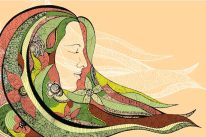
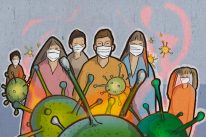
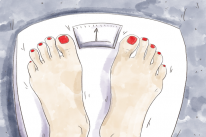


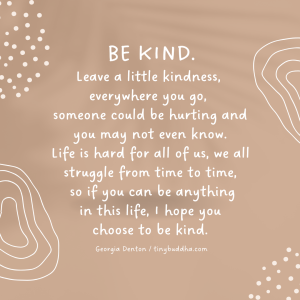
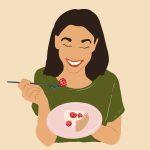

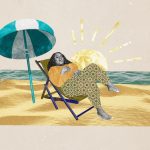
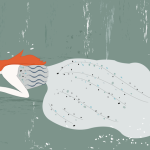

 Though I run this site, it is not mine. It's ours. It's not about me. It's about us. Your stories and your wisdom are just as meaningful as mine.
Though I run this site, it is not mine. It's ours. It's not about me. It's about us. Your stories and your wisdom are just as meaningful as mine. 